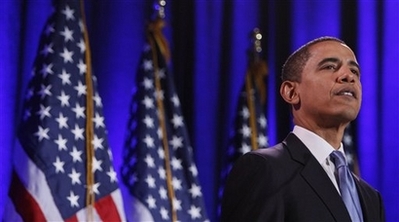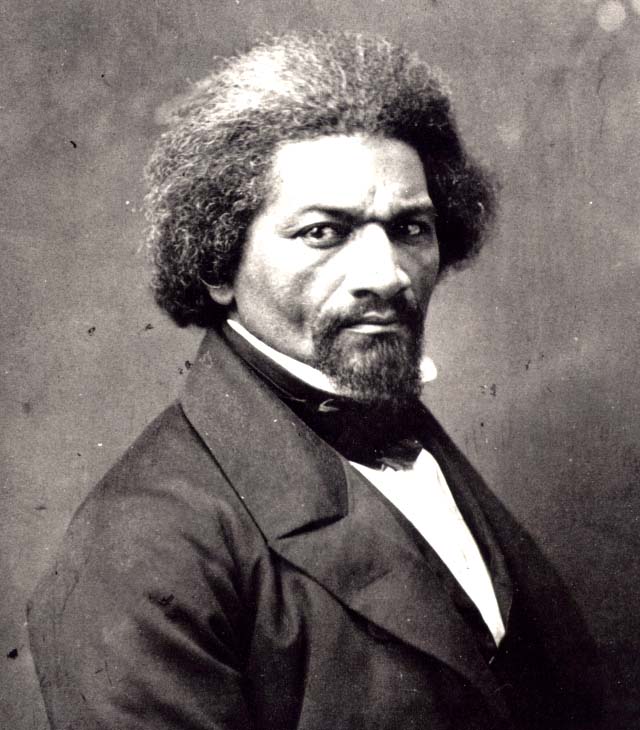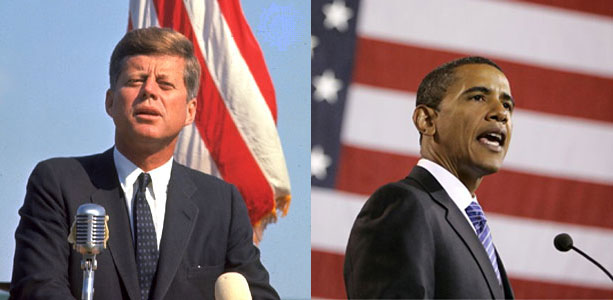
|
I am the son of a black man from Kenya and a white woman from Kansas. I was raised with the help of a white grandfather who survived a Depression to serve in Patton’s Army during World War II and a white grandmother who worked on a bomber assembly line at Fort Leavenworth while he was overseas. I’ve gone to some of the best schools in America and lived in one of the world’s poorest nations. I am married to a black American who carries within her the blood of slaves and slaveowners – an inheritance we pass on to our two precious daughters. I have brothers, sisters, nieces, nephews, uncles and cousins, of every race and every hue, scattered across three continents, and for as long as I live, I will never forget that in no other country on Earth is my story even possible. It’s a story that hasn’t made me the most conventional candidate. But it is a story that has seared into my genetic makeup the idea that this nation is more than the sum of its parts – that out of many, we are truly one… I can no more disown [Wright] than I can disown the black community. I can no more disown him than I can my white grandmother – a woman who helped raise me, a woman who sacrificed again and again for me, a woman who loves me as much as she loves anything in this world, but a woman who once confessed her fear of black men who passed by her on the street, and who on more than one occasion has uttered racial or ethnic stereotypes that made me cringe. These people are a part of me. And they are a part of America, this country that I love… The fact is that the comments that have been made and the issues that have surfaced over the last few weeks reflect the complexities of race in this country that we’ve never really worked through – a part of our union that we have yet to perfect. And if we walk away now, if we simply retreat into our respective corners, we will never be able to come together and solve challenges like health care, or education, or the need to find good jobs for every American. Understanding this reality requires a reminder of how we arrived at this point. As William Faulkner once wrote, “The past isn’t dead and buried. In fact, it isn’t even past.” We do not need to recite here the history of racial injustice in this country. But we do need to remind ourselves that so many of the disparities that exist in the African-American community today can be directly traced to inequalities passed on from an earlier generation that suffered under the brutal legacy of slavery and Jim Crow… In fact, a similar anger exists within segments of the white community. Most working- and middle-class white Americans don’t feel that they have been particularly privileged by their race. Their experience is the immigrant experience – as far as they’re concerned, no one’s handed them anything, they’ve built it from scratch. They’ve worked hard all their lives, many times only to see their jobs shipped overseas or their pension dumped after a lifetime of labor. They are anxious about their futures, and feel their dreams slipping away; in an era of stagnant wages and global competition, opportunity comes to be seen as a zero sum game, in which your dreams come at my expense. So when they are told to bus their children to a school across town; when they hear that an African American is getting an advantage in landing a good job or a spot in a good college because of an injustice that they themselves never committed; when they’re told that their fears about crime in urban neighborhoods are somehow prejudiced, resentment builds over time… Just as black anger often proved counterproductive, so have these white resentments distracted attention from the real culprits of the middle class squeeze – a corporate culture rife with inside dealing, questionable accounting practices, and short-term greed; a Washington dominated by lobbyists and special interests; economic policies that favor the few over the many. And yet, to wish away the resentments of white Americans, to label them as misguided or even racist, without recognizing they are grounded in legitimate concerns – this too widens the racial divide, and blocks the path to understanding. This is where we are right now. It’s a racial stalemate we’ve been stuck in for years. Contrary to the claims of some of my critics, black and white, I have never been so naive as to believe that we can get beyond our racial divisions in a single election cycle, or with a single candidacy – particularly a candidacy as imperfect as my own… The profound mistake of Reverend Wright’s sermons is not that he spoke about racism in our society. It’s that he spoke as if our society was static; as if no progress has been made; as if this country – a country that has made it possible for one of his own members to run for the highest office in the land and build a coalition of white and black; Latino and Asian, rich and poor, young and old — is still irrevocably bound to a tragic past. But what we know — what we have seen – is that America can change. That is the true genius of this nation. What we have already achieved gives us hope – the audacity to hope – for what we can and must achieve tomorrow.” |
In the wake of the Wright controversy, Sen. Obama delivers a thoughtful and nuanced speech on race in America. Video below:
Now, on one hand, I sorta wish Sen. Obama had never had to give this speech, that we were as far along with regard to race in this country as it had first seemed after Iowa. That being said, since events of recent days in particular have suggested how far we still have to go on the racial recrimination front, this speech was both a necessary and important one. It’s been garnering rave reviews across the political spectrum, and I’d throw my hat in there too — my main quibble with the address is that Obama wrote it himself. C’mon, Sen. Obama, think of the speechwriters. When political leaders write speeches as memorable and moving as this one, it’s going to put a lot of people out of work!
Seriously, tho’, I thought the address moved beyond soundbites to give a substantive and nuanced view of race in America, the type of which we haven’t heard in this country from a politician in a very long time. (I particularly like the Faulknerian flourish on the legacy of history.) And it — in true Obama form — showed that the Senator has an understanding of the grievances on both sides of the racial divide, and went out of its way to establish that Ferraro and Wright were two manifestations of the same intrinsic problem. Like TNR’s Michael Crowley, I am somewhat concerned about whether the nuance of his message will come through to undecided voters, once the Hardballs, Hannitys, and Blitzers are done with it. Still, today’s address was the type of leadership moment that I frankly can’t see either Sen. Clinton or Sen. McCain providing, and it showed once again how much our country stands to gain by electing Sen. Barack Obama our next president in November. Black, white, latino, or asian, leaders this wise, intelligent, thoughtful, and inspiring do not come along often.




